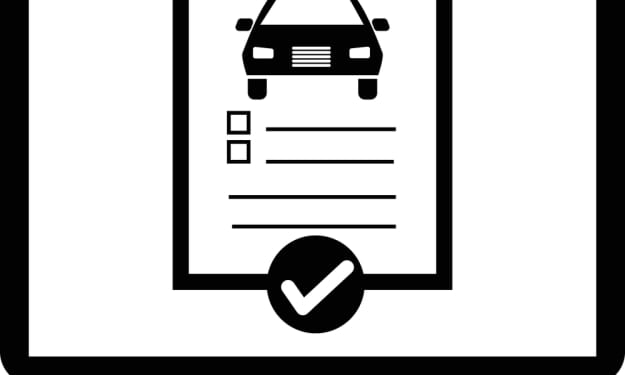What Happens When a Car Isn't Driven for a Long Time?
The Effects of Long-Term Car Inactivity: Unveiling the Consequences

Has your car been sitting in the garage, unused and untouched, for an extended period? It might seem harmless, but letting your car remain idle for too long can lead to some surprising and frustrating issues. Just like us, cars need regular activity to stay in top shape. From a rundown battery that refuses to start to tires developing flat spots, there are consequences that demand our attention.
In this article, we'll uncover the problems that occur when a car isn't driven for a long time and explore simple tips to keep your four-wheeled companion in excellent condition. Let's rev up our engines and dive in!
Section 1: Battery Woes
Leaving your car idle for a long time can cause several issues, and one of the most common problems is related to the battery.
Battery Rundown:
When your car sits unused for an extended period, the battery loses its charge. It happens because small electrical systems in the car, like the clock and alarm, continuously draw power, slowly draining the battery.
Recharging Challenge:
Getting a rundown battery charged again can be a hassle. Sometimes, a standard jump-start won't work, and you may need specialised equipment or professional help.
Tips to Prevent Battery Issues:
To avoid battery problems, start your car and take it for a short drive at least once a week. If you know the car won't be used for a while, disconnect the battery or use a battery maintainer to keep it charged.
Remember, a little care for your car's battery can go a long way in ensuring a smooth driving experience.
Section 2: Tire Troubles
Tires can give us a bumpy ride when our car has been parked for too long. Here's why:
Flat spots: When a car sits idle, the weight of the vehicle presses down on the same spot of the tires for an extended period. This pressure can create flat spots on the tires' surface, causing vibrations and an uncomfortable drive when you hit the road again.
Tire pressure loss: Over time, tires lose air pressure naturally. When your car isn't in use, this process can be faster, leading to underinflated tires. Low tire pressure affects handling, fuel efficiency, and tire lifespan.
Preventing tire problems: To avoid these tire woes, try moving your car slightly every now and then. Also, check the tire pressure regularly and keep them inflated to the recommended levels. This way, your tires will stay happy and ready to roll when you need them!
However, if you no longer want your car sitting in the yard, consider selling it to services like cash for cars Sydney. They buy vehicles in any condition, giving you dollars in return.
Section 3: Engine and Mechanical Components
Engine and mechanical components are the heart and soul of your car's performance and longevity. Let's explore some essential aspects you should be aware of when your car remains inactive for an extended period:
Oil Degradation: The engine oil plays a crucial role in keeping the engine running smoothly. However, when a car sits idle for too long, the oil can degrade and lose its effectiveness. This can lead to increased friction and wear on the engine components, potentially causing damage over time. To prevent this, it's essential to follow the manufacturer's recommended oil change intervals and consider an oil change before using the car again after a prolonged break.
Rust and Corrosion: Lack of movement and exposure to moisture can make your car vulnerable to rust and corrosion, especially in critical mechanical parts. Rust not only affects the appearance but can also compromise the structural integrity of the vehicle. Regularly inspecting and cleaning the exposed metal surfaces can help prevent rust from taking hold.
Maintenance Routine: A car that sits idle still requires regular maintenance to stay in good shape. This includes periodic checks of vital systems like brakes, belts, and hoses, as well as keeping the battery charged. Following a maintenance routine will ensure that your car is always ready to hit the road whenever you need it.
By understanding and addressing these engine and mechanical concerns, you can keep your car running smoothly and avoid costly repairs down the road. Keep your vehicle happy, and it will return the favour with reliable performance when you need it most!
Section 4: Fuel System Challenges
Leaving your car unused for an extended period can cause several problems with the fuel system. Let's take a look at these challenges:
Fuel quality deterioration: Over time, the fuel inside the tank can degrade, especially if it contains ethanol. This deterioration can affect the car's performance and lead to difficulties in starting the engine.
Clogged fuel lines: When a car remains idle, sediments and contaminants may settle in the fuel lines, causing blockages. This can result in reduced fuel flow and engine misfires, affecting overall efficiency.
Fuel stabilisers: To combat fuel quality issues, consider using fuel stabilisers. These additives help maintain the fuel's freshness and prevent it from breaking down, ensuring smoother engine operation even after prolonged inactivity.
By understanding and addressing these fuel system challenges, you can ensure that your car is always ready to hit the road when needed.
Section 5: Pest Infestations
Unwanted Visitors
When your car remains idle for a long time, it becomes an inviting spot for unwanted guests - pests! These creepy-crawlies, such as rodents and insects, find their way into the cosy corners of your vehicle. They see it as a perfect shelter and may start nesting inside, turning your car into their home.
Damage Potential
Pest infestations in your car can lead to significant damage. Rodents love to chew on wires and hoses, causing electrical problems and leaks. Insects can leave behind corrosive substances that harm your car's interior. If not addressed, these issues can be a real headache and result in expensive repairs.
Preventive Measures
To keep these pesky intruders at bay, take some preventive steps. Regularly inspect your car for signs of pest activity. Avoid leaving food or trash inside, as it attracts critters. Park your car in well-lit areas, as pests prefer dark hiding spots. Additionally, you can use natural repellents or traps designed for cars to deter them from making themselves at home. Remember, a little prevention can save you from a lot of pest-related trouble!
Conclusion
In conclusion, neglecting your car's need for regular use can result in troublesome problems. From battery drain and flat tires to engine issues and pest infestations, it's clear that cars fare best when they're driven. By adopting simple maintenance practices and taking our vehicles for occasional spins, we can ensure they remain reliable and ready to hit the road whenever needed. So, don't let your car gather dust—give it the care it deserves, and it'll serve you faithfully for years to come. Happy driving!





Comments
There are no comments for this story
Be the first to respond and start the conversation.